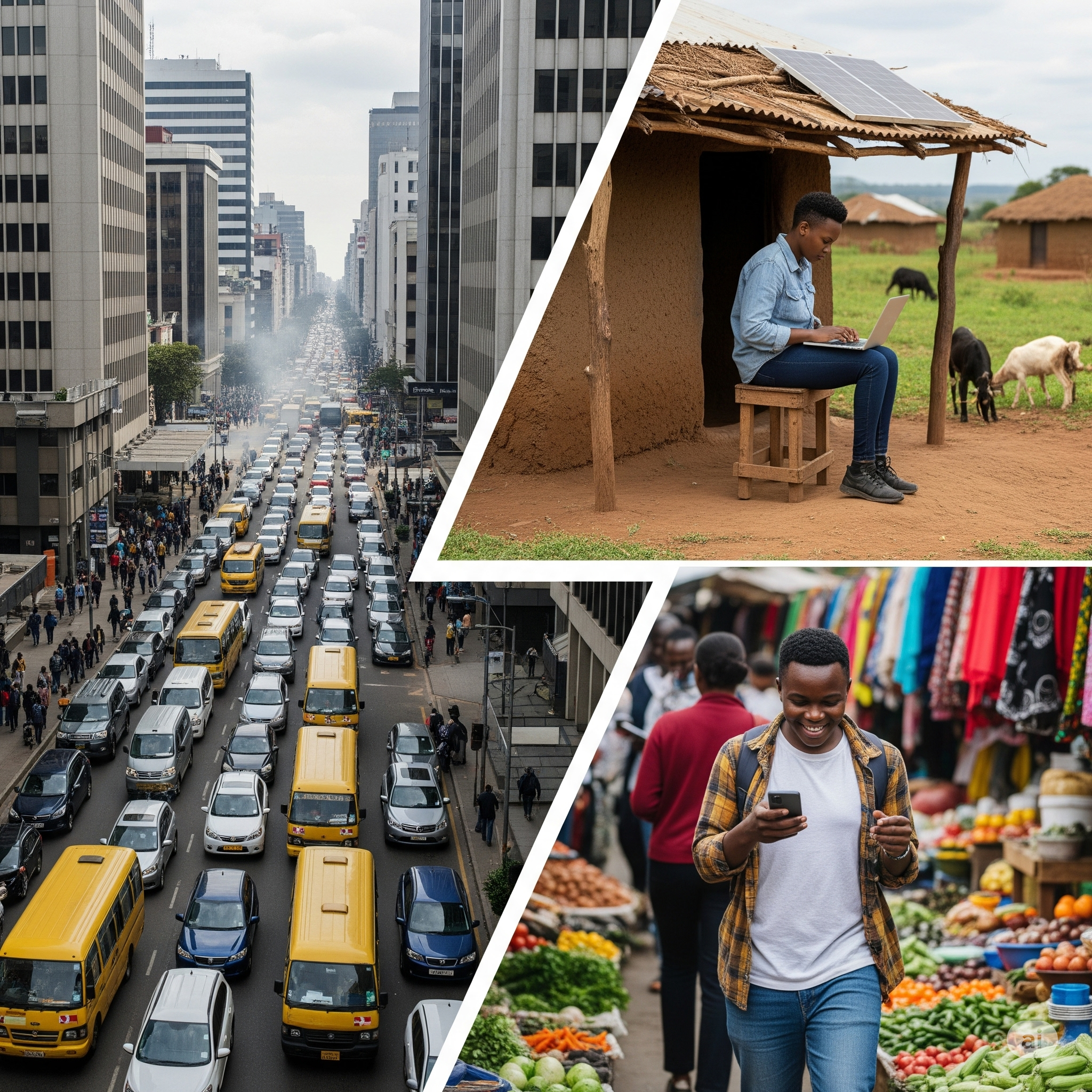Challenges to Adopting Flexible Work in Africa
1. Infrastructure Limitations
- Unreliable Electricity & Internet: Many African countries suffer from frequent power outages and poor broadband penetration, making remote work difficult.
- Example: Only 36% of Africans have internet access (World Bank, 2023).
- Countries like Nigeria, Zimbabwe and South Africa experience daily power cuts, hindering digital work.
2. Dominance of the Informal Sector
- Over 85% of employment in Africa is informal.
- Jobs like street vending, agriculture, and artisanal mining don’t fit a 9-5 model—they operate on survival-based hours.
- Example: A market trader in Lagos works 12+ hours daily, not by choice but necessity.
3. Cultural & Managerial Resistance
- Many African businesses believe that physical presence in an office equates to productivity.
- “Face-time culture” in offices means employees are judged by hours spent at work, not output.
- Shifting this mindset requires training and a new emphasis on trust and accountability.
4. Low Digital Literacy & Tech Gaps
- Only 28% of Africans have digital skills (GSMA, 2023).
- Many workers lack access to tools like Zoom, Slack, or cloud computing.
Opportunities for a Post-9-5 Africa
1. Leapfrogging with Mobile & Remote Work
- Africa is a global leader in mobile money (M-Pesa, Ecocash, MTN Mobile Money).
- Startups like Andela (Nigeria) and Tunga (Uganda) prove that remote tech jobs can thrive.
2. The Rise of the Gig Economy
- Platforms like Bolt, Uber, Jumia, and Upwork are creating flexible earning opportunities.
- Example: A Kenyan freelancer on Fiverr can earn in USD while working flexible hours.
3. Government & Corporate Experiments
- South Africa had a 4-day workweek trial (2023) showed 40% productivity boosts in some firms.
- Rwanda’s push for a digital economy includes policies supporting remote work.
4. Youth Demand for Flexibility
- Africa has the youngest population globally (median age: 19).
- Young professionals prefer startups, freelancing, and hybrid work over rigid corporate jobs.
Can Africa Fully Abandon the 9-5 Model?
✅ Yes, in formal sectors (tech, finance, startups) – Where infrastructure allows, flexible work is growing.
❌ No, for most informal & manual jobs – Daily wage earners, farmers, and traders can’t adopt remote work.
The Future: A Hybrid Approach
- Urban knowledge workers → More remote/hybrid options.
- Rural & informal workers → Still tied to traditional labor structures.
Africa won’t eliminate the 9-5 model entirely, but it can leapfrog into flexible work faster than the West did—if infrastructure, education, and policies improve.
#AfricaWorkWeek #Africa’sInformalSector


Leave a Reply